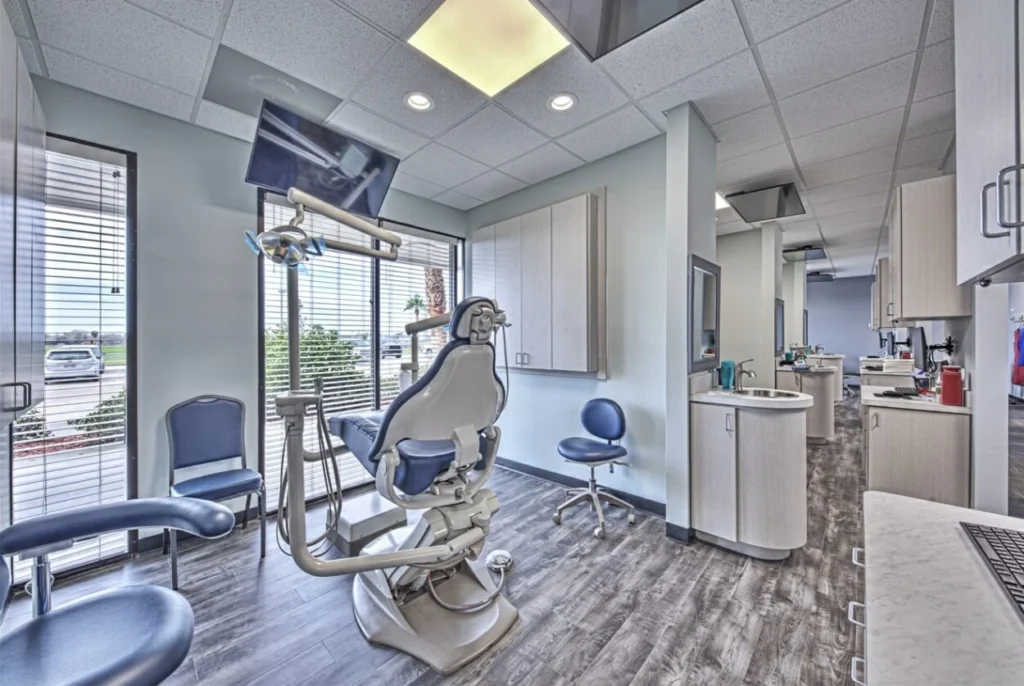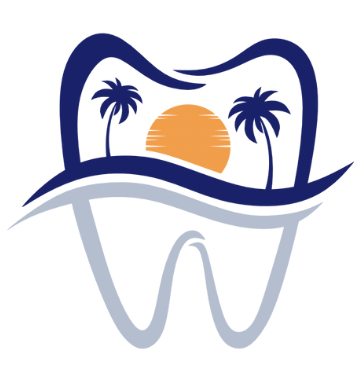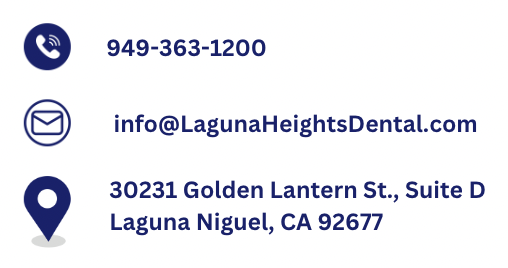Preventive dental care is vital for maintaining oral health and reducing emergencies. When individuals understand and practice preventive care, unexpected dental issues decrease significantly. This approach helps avoid severe problems that could result in pain.
Prevention starts with education and developing good oral hygiene habits effectively. Patients need to learn proper techniques for brushing and flossing regularly. This foundational knowledge helps identify and manage problems like early tooth decay.
Preventive care involves timely interventions such as sealant placements and fluoride treatments. These interventions can halt progression of minor dental concerns before emergencies. This approach conserves both patient health and financial resources over time.
Ongoing patient education plays critical roles in preventive care success stories. Patients should understand how lifestyle choices and dietary habits influence health. Dentists can offer advice on minimizing sugary drinks and tobacco dangers.
Debunking Common Myths About Dental Emergency Prevention
Many people believe dental emergencies are random and completely unavoidable situations. In reality, most emergencies result from neglecting oral health completely. Bypassing preventative care routines allows minor issues to become severe problems.
Proactively engaging in regular dental checkups prevents potential emergencies from developing. These checkups provide opportunities for early detection of cavities or disease. Timely treatments such as fillings prevent conditions from deteriorating urgently.
Another pivotal aspect involves adopting proper oral hygiene practices at home. Daily routines including thorough brushing and flossing eliminate plaque buildup effectively. Patients informed about these benefits implement them consistently reducing emergency risks.
Comprehensive preventive care education helps dismantle misconceptions around dental emergencies completely. Understanding preventive approaches instills mindsets geared towards regular maintenance and care. Such informed perspectives transform how individuals approach their oral health.
Maximizing Benefits Through Regular Dental Checkup Appointments
Routine dental checkups present invaluable opportunities for maintaining optimal oral health. Unfortunately, full potential of these visits often goes unrealized by patients. Many treat checkups as responses to pain rather than prevention.
Primary benefits of routine checkups lie in early detection of issues. Identifying initial stages of tooth decay or gum disease allows interventions. Fillings or scaling can be performed before conditions worsen significantly.
In addition to spotting decay, routine checkups help identify structural vulnerabilities. Through protective coating applications or specific dental product recommendations, professionals address weaknesses. Prioritizing tooth structure maintenance prevents dental emergencies from occurring.
To truly harness checkup benefits, consistent attendance remains crucial for success. Making regular appointments allows continuity of care supporting oral health. This establishes rapport with dental professionals leading to personalized approaches.
Essential components of effective routine dental checkups include:
• Early detection screening for cavities, gum disease, and other developing conditions
• Professional cleaning removing plaque and tartar that daily brushing misses
• Structural assessment identifying tooth vulnerabilities before they become problems
• Personalized recommendations for home care products and techniques
• Educational guidance about dietary choices and lifestyle factors affecting oral health
This relationship fosters partnerships in oral health maintenance between patients and professionals. Unique needs and concerns of patients are addressed through consistent care.
Addressing Dangers of Poor Home Dental Care Habits
Inadequate home dental care including neglecting daily routines significantly compromises health. Poor dietary habits can escalate risks of developing severe conditions. Such neglect often leads to emergency treatments that could be avoided.
Proper brushing and flossing remove plaque and food particles contributing to decay. Educating individuals on effective brushing techniques using soft-bristled toothbrushes helps significantly. Correct flossing methods can reduce incidence of oral health issues.
Nutritional choices play equally important roles in maintaining oral health effectively. Habitual consumption of foods high in sugar and acid erodes enamel. Raising awareness about dietary impact and suggesting healthier options prevents decay.
Using teeth for non-eating tasks such as opening packages causes damage. This can lead to chips, fractures, or other structural problems requiring care. Informing people about dangers and suggesting alternatives helps avoid urgent visits.
Creating Personalized Dental Health Prevention Strategies
Individualized dental health plans represent core strategies for preventing dental emergencies. Such personalized care targets unique aspects of each patient’s oral condition. This approach helps significantly reduce occurrence of unexpected dental problems.
Education on oral hygiene practices is crucial in customized dental plans. Teaching proper brushing and flossing techniques empowers patients to take steps. Understanding particular oral health needs helps patients apply knowledge at home.
Preventive dental treatments such as fluoride applications should be considered individually. Dental sealants provide protective barriers against bacteria and food particles. Both treatments can be tailored depending on age and cavity history.
Implementation of personalized treatment strategies plays significant roles in mitigating emergencies. Patients who grind teeth at night might benefit from nightguards. This proactive planning aligns with specific conditions forming effective defenses.

Recognizing Warning Signs Before Problems Become Emergencies
The ability to recognize early signs of dental problems prevents emergencies. When patients know what symptoms to watch for, timely care results. This leads to more conservative treatments and better outcomes overall.
Persistent pain in the mouth represents one significant trigger for concern. Whether dull aches or sharp pain, these often signal underlying issues. Educating patients to respond by scheduling visits leads to early interventions.
Sensitivity to hot or cold temperatures represents another common warning sign. This may result from enamel erosion or receding gums exposing roots. Promptly addressing symptoms with consultations prevents further damage and complex procedures.
Physical changes such as loose teeth, bleeding gums, or swelling demand attention. Providing clear guidance on recognizing symptoms ensures patients take action. This helps preserve oral health while fostering confidence in care.
Comprehensive Support and Professional Guidance at Laguna Heights Dental
At Laguna Heights Dental, unwavering dedication to thorough support guides patient care. Expert guidance ensures patients can navigate their dental health with confidence. This support remains available to patients at all times consistently.
Accessibility to immediate assistance in urgent situations represents fundamental patient support. Emergency contact options allow patients to connect with dental professionals. Whether sudden toothaches or dental trauma, reliable emergency channels make differences.
Equally important is provision of in-depth follow-up care post-treatment consistently. This commitment extends beyond initial procedures encompassing continued care and guidance. Additional check-ups and home care routine advice demonstrate holistic approaches.
Laguna Heights Dental’s emphasis on support reflects pledges to serve community needs. By equipping patients with necessary tools and knowledge, empowerment occurs. Informed patients are better positioned to make decisions favoring wellbeing.
Daily Preventive Practices That Make Real Differences
Consistent application of preventive dental measures reduces likelihood of dental emergencies. Establishing comprehensive daily dental routines forms defensive barriers against issues. This fosters long-term positive impacts on overall wellbeing and health.
Protective gear represents one key preventive measure for active individuals especially. Educating patients on importance and correct mouthguard use prevents injuries. Incorporating mouth protection into sports activities cultivates protective habits from childhood.
Regular professional dental cleanings play significant roles in maintaining oral health. These cleanings remove plaque and tartar buildup that brushing misses. Routine assessments during visits help detect conditions before they escalate.
Establishing good oral hygiene habits from young ages sets foundations. Brushing twice daily with fluoride toothpaste and regular flossing helps significantly. Using antiseptic mouthwash can diminish risks of decay and disease.
Prevention strategies that patients can implement immediately include:
• Daily brushing with fluoride toothpaste using proper technique for optimal results
• Regular flossing to remove plaque between teeth that brushes cannot reach
• Using mouthguards during sports and physical activities to prevent trauma
• Avoiding using teeth as tools for opening packages or cracking nuts
• Maintaining regular professional cleaning appointments for comprehensive oral care
These preventive measures work together creating comprehensive protection against dental emergencies. Consistency in application ensures maximum effectiveness for long-term oral health.
Embracing Proactive Mindsets for Long-Term Oral Health Success
The cornerstone of mitigating dental emergencies lies in fostering proactive mindsets. Comprehensive shifts to preventive practices guarantee collective reductions in emergency occurrences. This transforms overall management of oral health for patients and communities.
Adoption of regular preventive measures remains pivotal for long-term success. When dental professionals encourage patients to participate in routine cleanings. Natural reductions in urgent dental conditions occur through early identification.
Reinforcing significance of consistent dental care is crucial for patient outcomes. Whether maintaining daily oral hygiene regimens or adhering to treatments. Continuous care plays invaluable roles in preventing conditions from escalating.
The power of education in instilling proactive dental strategies cannot be overstated. By educating patients on principles of dental health and care. Dentists can profoundly influence patients’ health choices leading to prevention.
Laguna Heights Dental and Dr. Nazita Gaff are more than a provider—we’re your partner in oral health. We believe in educating and empowering our patients, not just treating symptoms. When you need answers, reassurance, and expert care, we’re just one call away.
Schedule your consultation Today!
Laguna Heights Dental
28202 Cabot Rd, Suite 600
Laguna Niguel, CA 92677
(949) 363-1200
See More Reviews From Laguna Height Dental. View information about local places in our community.
Frequently Asked Questions
How can I prevent most dental emergencies?
The most effective way to prevent dental emergencies involves practicing good hygiene. Regular brushing and flossing along with consistent dental checkups help significantly. Taking immediate action when experiencing warning signs like pain prevents problems.
What are the early signs of dental emergencies I should watch for?
Keep watching for persistent oral pain and sensitivity to temperatures carefully. Loose teeth, bleeding gums, or swelling represent early warning signs. These could indicate conditions that may develop into emergencies without treatment.
Can a proper diet really impact my risk of a dental emergency?
Absolutely, minimizing intake of sugary and acidic foods reduces decay risks. This significantly decreases chances of tooth decay and gum disease development. Balanced diets contribute to stronger teeth and healthier gums over time.
Related Articles
Emergency Dental Insurance, Emergency root canal, Emergency Extraction, Types of Dental Emergencies, Dental ER, Pediatric Dental Care, What Causes Tooth Pain, Dental Care Tips, Toothache Relief, Lost Filling or Crown





